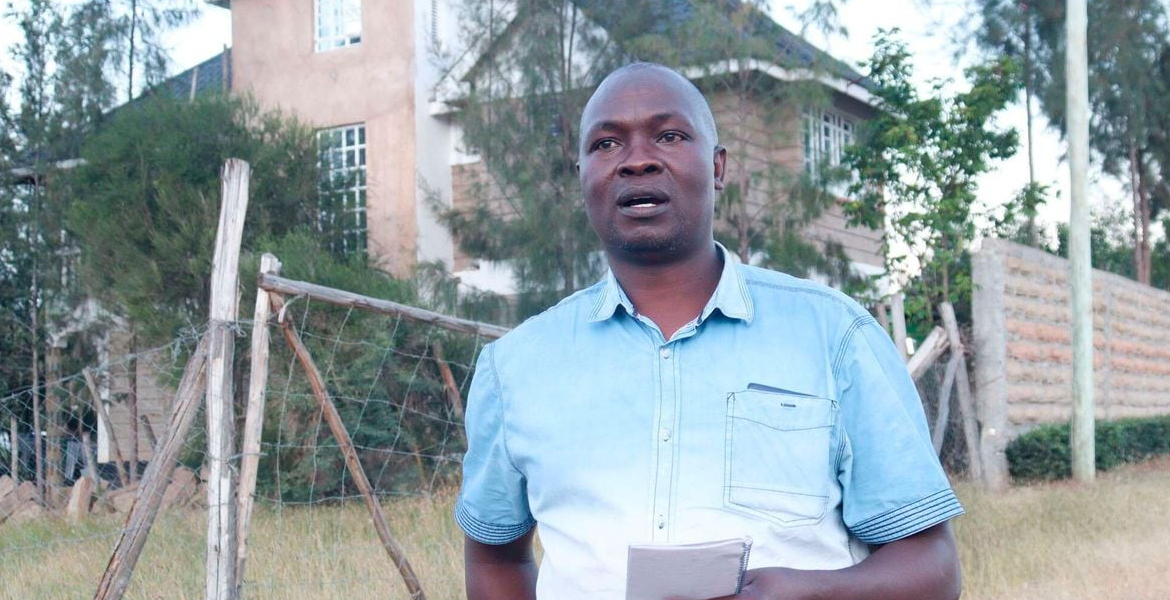Mavoko Residents Face Eviction as KCB Land Dispute Escalates

Hundreds of homeowners in Mavoko are facing a precarious future as a complex land dispute escalates in the Machakos High Court, pitting them against East African Portland Cement (EAPC) and Kenya Commercial Bank (KCB).
Residents who purchased land from local community groups years ago now face the threat of eviction as EAPC asserts its ownership and KCB seeks to recover a substantial debt of approximately Sh5.6 billion. The legal battle reached a critical juncture earlier this year when residents, represented by the Mavoko Muundani Residents Association, filed a lawsuit against KCB, EAPC, and the Attorney-General, seeking legal recognition of their investments and protection from eviction.
The High Court initially granted temporary orders acknowledging the residents and their developments, emphasising that their infrastructure should be respected until the case is fully adjudicated. However, KCB swiftly moved to overturn these orders, arguing that they infringe upon the bank's proprietary rights. The bank contends that the residents were previously categorised as trespassers in an earlier ruling, and therefore, have no rightful claim to the land.
KCB maintains that the temporary orders should be lifted to allow the bank to proceed with its intended sale arrangements. The dispute centres around a tract of land that EAPC surrendered to KCB due to its debt. In November 2024, KCB initiated a regularisation process, offering occupants the opportunity to acquire the land by providing proof of purchase through share certificates and paying a regularisation fee of Sh200,000.
However, the process quickly became contentious, with residents raising concerns about inconsistencies in pricing and procedural decisions. An agent identified as "Mugo" was placed in charge of the sale, operating out of makeshift offices on the land. Residents allege that the process was marred by a lack of transparency, leading to increased tensions and fears that the situation could escalate into mass evictions similar to those witnessed in another part of Mavoko in 2023.
These tensions reached a boiling point when some homes were marked with red "X" signs, signalling impending demolitions. Residents like Alfred Ondara, who has invested his life savings into his home, express deep anxiety and have vowed to resist any eviction attempts without due legal process. The residents argue that they acted in good faith when they purchased the land, believing they had acquired it legally from community groups.
They have invested heavily in building homes and improving infrastructure, only to now face the prospect of losing everything. KCB's arguments hinge on the assertion that the residents misrepresented their claims by failing to acknowledge the earlier ruling that classified them as trespassers. The bank claims that prior court findings established that non-registered individuals have no legal claim to the land, and therefore, the temporary orders issued earlier this year should be rescinded.
In response, residents contend that KCB officials previously attended meetings where they promised clarity on the regularisation process. While these discussions were conducted under heavy security, no consensus was reached on the way forward. Despite this, KCB proceeded with its plans, even demanding payments from residents who remained uncertain about the legitimacy of the transaction.
At the heart of the dispute are conflicting claims over land valuation and ownership structures.
Residents have questioned the sudden shifts in land valuation, suggesting that the land, if properly sold, could generate significantly more revenue than the loan KCB seeks to recover. The lack of clarity surrounding the legal status of the property has left residents in a state of limbo, caught between financial negotiations and judicial proceedings. The Mavoko land dispute underscores broader issues concerning land ownership and financial transactions in Kenya, where cases of individuals purchasing property without clear titles and subsequently facing eviction are increasingly common.








Add new comment